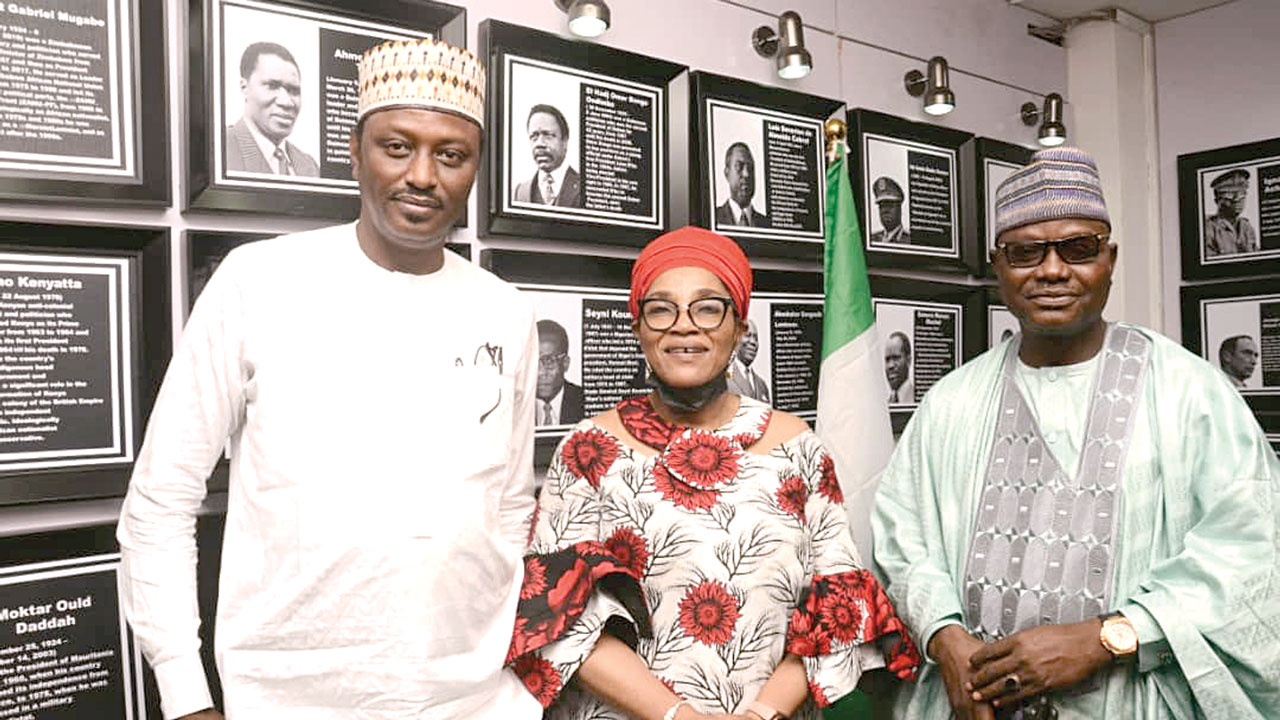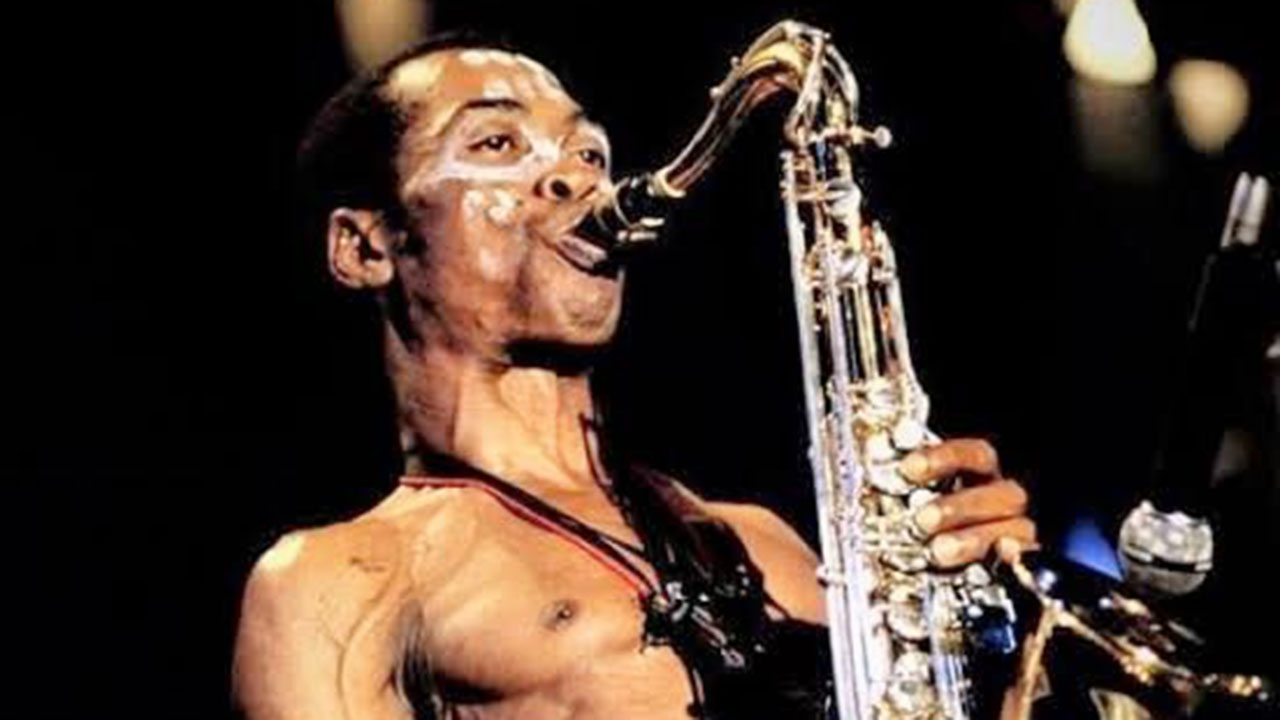
The Centre for Black and African Arts and Civilisation (CBAAC) has repackaged celebration of black and African culture with an assemblage of famous black leaders.
On parade at its recent unveiling of the Black and African Hall of Fame were 50 of the 59 heads of state that were present or contributed to the FESTAC 77 event, including the then Gen. Olusegun Obasanjo as host.
Also included are African artists such as Fela Anikulapo Kuti, Sir Victor Uwaifo and others.CBAAC Director-General and host of the event, Mrs. Oluwabunmi Amao, explained that the aim was to protect and propagate history, especially now that history has returned to the country’s educational curriculum.
Following that move, “I decided to bring back all the people that participated in FESTAC 77, including heads of states, non-performers and others, so that people, schools and children will be coming to learn how we did FESTAC 77,”Amao said.
For ease of accessibility to the knowledge and materials being showcased, she disclosed that the agency was thinking of a bigger outing in Lagos for the Southwest, and in other regions, as well as going online for people, who might not come down to the centres.
Meanwhile, the Minister of Finance, Budget and National Planning, Zainab Shamsuna Ahmed, has indicated that the mini museum would be accommodated in a more spacious apartment to enable it host students and tourists.
Commending Amao for the “amazing experience,” Ahmed, who is also framed in the hall of fame, expressed delight at the quality and number of historical items on display, stating, “it depicts the history of FESTAC 77.
“I want to encourage the Minister of Information, DG and management of CBAAC to keep up this work. You need to expand it so that more people can experience it.
“This is very nice and you need to have a place that is more spacious to be able to attract more visitors – both youth and even us the elderly, and also foreigners to visit and experience the Black African culture.”
Describing arts and culture as potential to the economy post-COVID-19, Ahmed said: “If we are able to continue to manage the economy better, we will be able to open up tourism, and this is the kind of thing that tourists will love to visit. So, there is great potential in the culture aspect of our economy.”
Also, the Chairman, Senate Committee on Culture and Tourism, Rochas Okorocha, noted that such display of the African culture by men and women who have made history would be an “inspiration for the younger generation.”
According to him, it should “attract necessary tourism visit by students, undergraduates, everyone. When history of this nature is kept alive, it inspires the future generations.
“I feel that government must support CBAAC, because the entire black world is headquartered in Nigeria, and Nigeria should showcase that big Africa that it is.”
He called for an expansion of the , with CBAAC having a department in each state while the “national one should be here in Abuja, but of course not in a small building like this. Things like this can bring people to the country and requires a bigger centre, where people will come and unveil the history of their country.”
According to him, “the point is that Nigeria has been talking about alternative to oil – tourism. Nations that don’t have oil live by this, and we have better stories to tell than any black nation in the world today.
“So, why can’t we tell our stories? I know that many Americans are tracing their roots to Nigeria because they want to become Nigerians. I think we need to give more attention to things like this.”
For funding, however, he called for the privatisation of tourism as a business, stating that “it must be private-driven, it shouldn’t be a government function. Government should only provide an enabling environment for the private sector to take up this. If a private businessman embarks on this project and government is able to support, why wouldn’t you make money?
“So, think outside the box, there is money everywhere but the brain to pull it out. For me, it is a challenge. We should think further than this. Privatize it and go ahead.”
Similarly, Chairman, House Committee on Culture and Tourism, Ogbeide-Ihama Omoregie, commended CBAAC for its “innovative and strategic way of bringing history to the doorsteps of everyone.”
He assured that such would “encourage us (National Assembly) to support government agencies who come up with innovations like this. This kind of development in the heart of Abuja requires all the support – both from the executive and legislative arms, because there is a lot to bring on board.”
For Abike Dabiri-Erewa, who is also listed in the hall of fame, it is a centre of attraction where any visitor to Nigeria should visit. The Chairman/Chief Executive Officer of Nigerians in Diaspora Commission (NIDCOM) promised to be directing “any visitor from the diaspora to this historical place that we have been able to cut out here.”
According to her, there is nowhere in Nigeria that you have this array of history makers, and am really excited to see my picture on the wall, so it only encourages you to work harder and harder.
“We should set the pace, which CBAAC has been able to do, and celebrate ourselves. We should be proud of our heritage and do everything to ensure that Africa really, truly is the centre of civilization.”
Earlier, the Permanent Secretary, Ministry of Information, Culture and Tourism, Dr. Adaora Ifeoma Anyanwutaku, who represented the Minister of Information and Culture, Alhaji Lai Mohammed, stated that she was impressed with the effort, because what has been done would really help to preserve African arts and culture from extinction.






